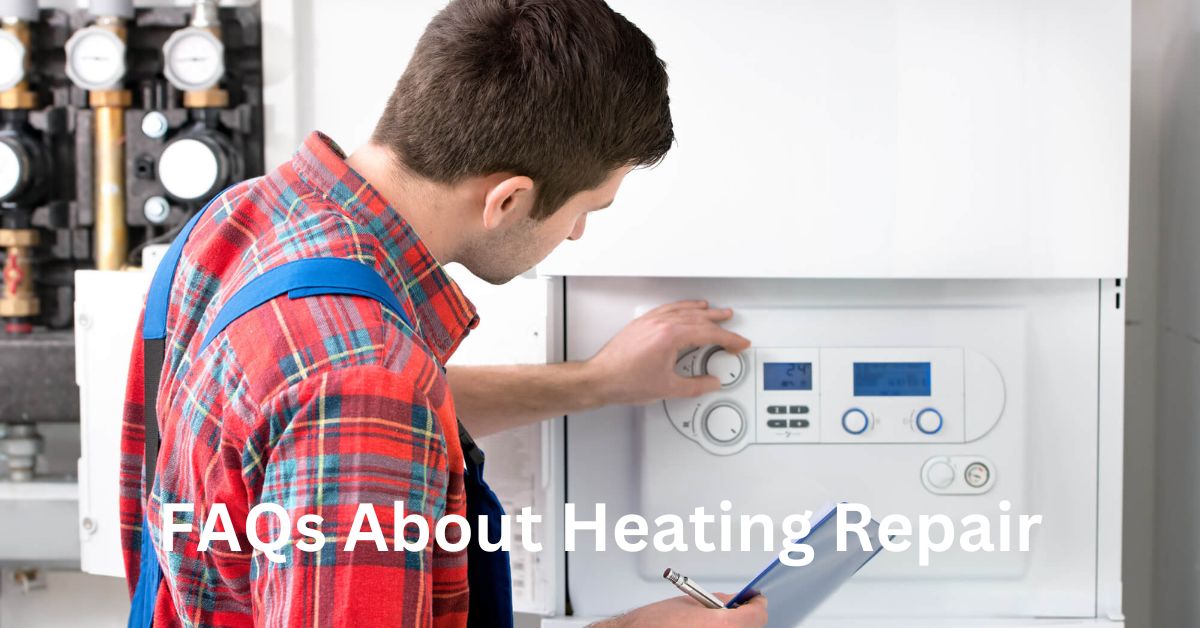FAQs About Heating Repair
If your home’s heating system is faulty, it can cause major inconveniences, especially in the colder months. Emergency heating repair can help prevent minor issues from escalating into major disruptions. Recognizing the signs of heating repair needs empowers you to take action and get repairs in a timely manner. Here are FAQs about heating repair:
What Are The Common Signs of Repairs?
Understanding common heating system issues can help simplify repairs. If you notice rising energy bills with no lifestyle changes, it may indicate inefficiency. Frequent cycling on and off will disrupt consistent home temperatures and indicate furnace thermostat problems and musty odors can point to pipe leaks or damaged ducts. Having a professional diagnose symptoms will help schedule targeted, efficient repairs.
What Are The Types of Heating Systems?
Different heating systems, such as furnaces, heat pumps, and boilers, have different maintenance routines. Aging furnace parts may corrode over time, shutting the system down. Faulty heat pumps due to high temperatures require fluid top-ups. Boilers may leak at warped pipe joints. Thermostat malfunctions in forced-air setups can cause irregular cycling. Partnering with experts helps address all heating system concerns.
What Are The Benefits of Emergency Repair?
Recognizing common warning signs of heating system failure helps avoid breakdowns. Yearly tune-ups restore components to peak performance through cleaning, adjusting, and replacing worn parts. Inspections prevent minor issues from spiraling into problems requiring system replacement. Experienced heating technicians understand the signs of an impending system shutdown. They advise moving from minor hit-or-miss repairs to an emergency heating repair option once a unit passes its lifespan.
What Are Preventative Maintenance Tips?
Neglecting routine heating inspections can shorten system lifespan and efficiency. Tune-ups allow technicians to clean gas burners and replace worn fan belts. Without this service, issues like delayed heat delivery can worsen. Skipping duct inspections allow pollutants to build up, restricting airflow to rooms. Annual checkups help catch minor problems before they escalate into major repairs. Preventative maintenance also helps to preserve equipment durability and performance.
Tune-ups allow technicians to clean and lubricate furnace components to restore efficiency. Blocked filters, dirty heat exchangers, failing igniters, and deteriorated blower motors are common problems to catch before they manifest. Regular inspections help extend equipment life by repairing emerging issues.
Supporting your heating system with electrical surge protectors shields sensitive components from sudden power spikes, making your system safe. Installing smart thermostats that automatically adjust settings while you’re away can reduce strain on furnace and boiler parts. Closing off unused vents optimizes airflow delivery throughout all rooms.
How Can You Choose The Right Technician?
When vetting heating repair technicians, look for mechanical competence. They should have experience fixing your particular system brand and model. A trusted technician provides clear explanations of required repairs and transparent pricing without upselling. They can also recommend the best parts for your system.
Seek Emergency Heating Repair Today
Emergency heating repair gives your system the care it needs for reliable performance. Recognizing unusual noises, higher electricity consumption, or uneven airflow allows you to schedule expert evaluations. Licensed heating technicians with experience servicing your particular system diagnose, repair, and prevent issues. Contact specialists today to analyze repair needs in your home.






